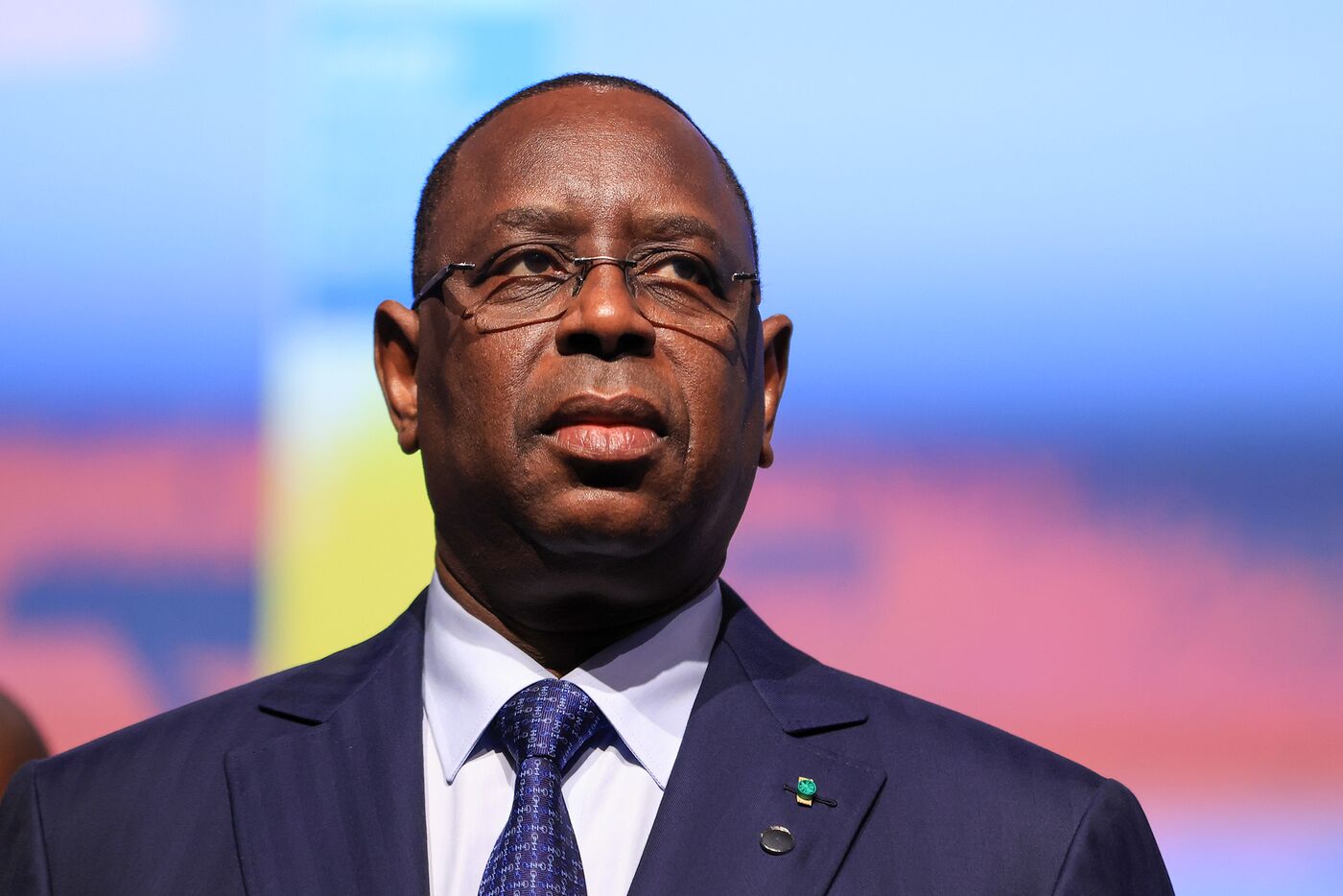
Foreign
Senegal’s Democracy At Stake As Court Rejects Election Postponement

iexclusivenews – Senegal, widely regarded as one of the most stable democracies in West Africa, is facing a political crisis after its top court ruled that the presidential election scheduled for this month cannot be postponed.
Constitutional Council Says No to Sall’s Bid
President Macky Sall had sought to delay the election by almost a year, citing the need to resolve a dispute over the eligibility of some candidates.

However, the Constitutional Council, the highest judicial authority in the country, rejected his bid on Thursday, saying it was unconstitutional.
The council said the law passed by the National Assembly on Feb. 5 to postpone the election to Dec. 15 and extend Sall’s mandate until a successor is sworn in “is contrary to the constitution”.
The council also said the president “doesn’t have the authority to postpone or cancel elections” and his mandate “cannot be extended” beyond its original term, which ends on April 2.

The council urged the government to hold the polls “as soon as possible” taking into account the time for campaigning.
Opposition Cries Foul, Protests Erupt
READ MORE:
Senegal in Political Crisis as President Suspends Election
Police Fire Tear Gas On Anti-Western Protest In Kinshasa
Sall’s decision to call off the election that was supposed to take place on Feb. 25 had sparked outrage among the opposition, who accused him of trying to cling to power or influence the outcome of the vote.
Opposition leaders called the move a “constitutional coup” and challenged it at the Supreme Court.
The opposition also mobilized their supporters to protest against the delay, leading to violent clashes with the security forces across the country.
At least three people have been killed and hundreds have been arrested in the past week.
The UN, the US, and the regional bloc ECOWAS have expressed concern over the situation and urged the authorities to clarify the electoral calendar and respect the constitution.
Controversy Over Disqualified Candidates
One of the main reasons behind the political crisis is the controversy over the disqualification of some candidates from the presidential race.
The Constitutional Council had validated only 20 candidates out of the 40 who had submitted their applications on Jan. 20.
Among the disqualified candidates are two prominent opposition figures: Ousmane Sonko and Karim Wade.
Sonko, a popular politician and former tax inspector, was arrested and charged with rape in March 2021.
He was later convicted of morally corrupting a minor and accused of plotting an insurrection. He was barred from the ballot because of his criminal record.
Wade, the son of Sall’s predecessor Abdoulaye Wade, was also excluded from the race because he held dual citizenship with France when he filed his candidacy.
Wade, who had served as a minister under his father, had been convicted of corruption and sentenced to six years in prison in 2015.
He was pardoned by Sall in 2016, but his conviction was not overturned.
He also accused two judges at the council of corruption, triggering a parliamentary inquiry.
The 20 candidates who were cleared by the council to run in the election remain eligible, the council confirmed in its ruling on Thursday.
However, the opposition has questioned the credibility and independence of the council, and some have called for a boycott of the vote.
Senegal’s Democracy on Trial
Senegal has long been seen as a model of democracy in a region plagued by coups, conflicts, and authoritarian regimes.
It is the only country in mainland West Africa that has never experienced a military takeover. It has also had three peaceful transfers of power since independence from France in 1960.
However, the current political crisis has put Senegal’s democratic credentials to the test, and raised doubts about its stability and governance.
The country faces a critical challenge to uphold its electoral integrity and judicial independence, and to prevent further violence and unrest.
The fate of Senegal’s democracy may depend on how the government and the opposition handle the situation on the coming days and weeks.













